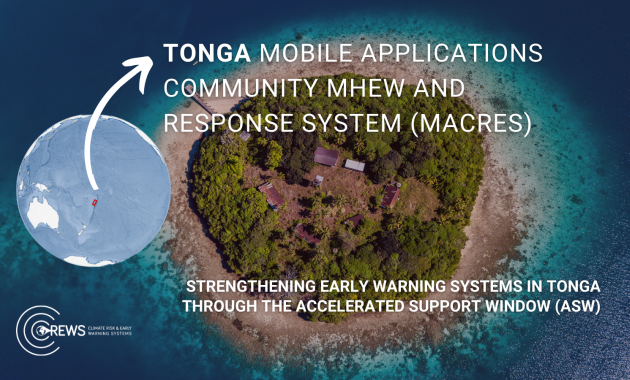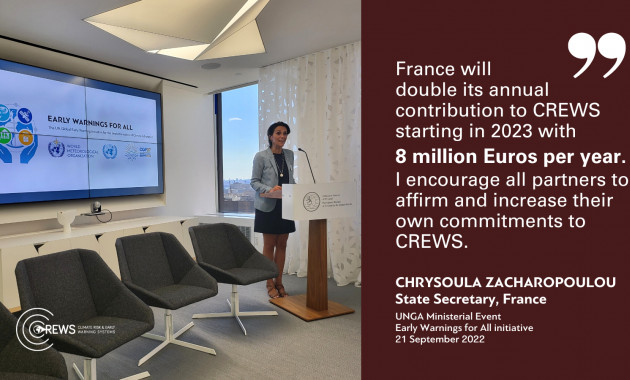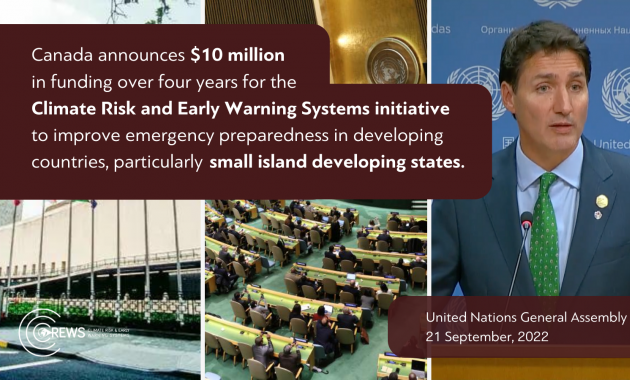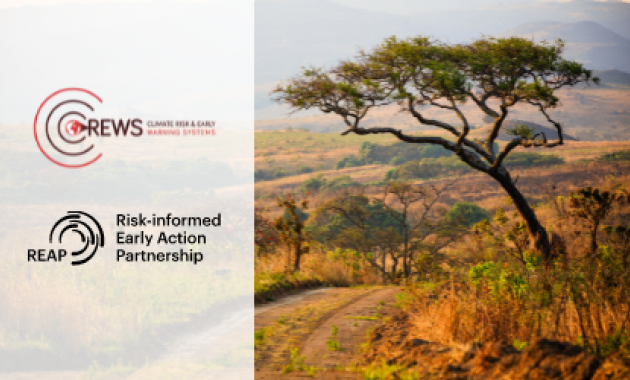Ministers, participants and experts highlighted that climate change already threatens food security, access to water and many other sources of livelihood of millions of people. Approximately 3.3 to 3.6 billion people live in contexts that are highly vulnerable to climate change. The IPCC’s WG II of the incoming sixth assessment report recognizes that there are already limits to adaptation and that the window of opportunity to secure a liveable and sustainable future is rapidly closing. With every increment in global warming, the projected adverse impacts for humans and ecosystems and related losses and damages escalate. All communities and countries are affected by climate change impacts. As a result of different vulnerabilities, especially developing countries and in particular the least developed countries, as well as low-lying small island developing states, coastal communities and marginalized and poor people face bigger challenges.
Trust was a key theme throughout interventions as a fundamental element to increasing and enhancing cooperation. This included trust that commitments made (on financial or mitigation ambition) should be met moving forward. The need to deliver on development pathways that keep the 1.5C within reach and the need to accelerate implementation by scaling up action and support, were also cross-cutting themes. There was a general sense that the outcomes in Bonn did not reflect the needed urgency of action and the commitment to consensus that are required. Participants also highlighted the importance of recognizing relevant connections and ensuring appropriate linkages to food security, biodiversity, desertification, oceans, health, social and economic development and other relevant environmental and development issues.

The importance of civil society, indigenous, women and youth in addressing climate change was emphasized by many delegations, including ensuring their active and appropriate inclusion at the UNFCCC climate conferences and other related meetings. At this Petersberg, both Germany and Egyptian Cop27 Presidency put great emphasis on ensuring a seat at the table for civil society constituencies, setting a new standard for participation.
Major take-aways
1. A common sense of the growing risk that climate impacts present to resilient development pathways, and the need to better support those who are most vulnerable to the impacts of climate change in adapting to and addressing them.
Almost all countries highlighted stories of devastating floods, droughts, heat waves, forest fires and extreme weather events. It was made clear that everybody is feeling the effects of the climate crisis, but also that the poorest and most vulnerable are least equipped to deal with the impacts they face. Looking ahead to COP, discussions surfaced clear expectations for outcomes that increase the capacity of all to better avert, minimize and address respective losses and damages. There was also growing convergence around expectations that COP lay foundations for better supporting developing countries in dealing with impacts financially, and through capacity building, and technology transfer - in adapting, as well as in averting, minimizing and addressing losses and damages.
There was broad consensus that COP27 should adequately address adaptation through work towards the Global Goal on Adaptation, including looking at how to better assess and measure adaptation progress and capturing progress towards the of the Goal. In addition, many inputs shared experiences on how to turn national adaptation planning into fundable project pipelines and successful implementation. Loss and Damage was central to the discussions. Disappointment was expressed by some participants at the lack of progress so far, including in negotiations around operationalizing the Santiago Network. Many highlighted the need to expand action and funding for Loss and Damage. Perspectives on priority COP27 outcomes varied, but included expectations of outcomes that would: operationalize the Network and to follow up on and define an outcome for the Glasgow Dialogue and to create a standing space in the UNFCCC agenda to discuss Loss and Damage. Parties discussed the need for a space to address loss and damage funding arrangements, and some delegations suggested assessing the existing architecture and the ways to effectively use and strengthen it, and whether additional adjustments are needed in the overall financial architecture. As part of the solution, Germany presented the Global Shield against Climate risks. Other parties highlighted the direct and immediate need for separate “loss and damage” coded channels. There was also growing convergence on the need for strong and coordinated action outside of the formal negotiations, with initiatives like CREWS, the Global Shield against Climate Risks, the InsuResilience Global Partnership, and WMO’s work towards a universal Early Warning System in the next five years, being perceived as important, complementary and mutually reinforcing steps in the right direction.









